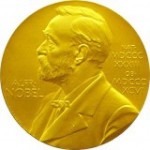 The best summation I heard about this piece of good news came from my friend Jeffery L., who wrote about it on Facebook:
The best summation I heard about this piece of good news came from my friend Jeffery L., who wrote about it on Facebook:
The prize was criticized by the Vatican, consistent with their reproductive policy that the world needs more unwanted children, and fewer wanted ones.
Infertility is not a mark of God’s disfavor. And the incredible advances in helping infertile couples experience the miracles that we both appreciate and complain about on this blog are something that should have won the prize long ago (Robert Edwards may have won the award, for example, but his collaborator died years ago).
The Vatican is out of line on this and, sadly, on many issues as they relate to parenting and families. The shame of it that Catholic values seem like they can strengthen individual families (unless one of the kids turns out gay—whoops!), but they seem to be somewhat disastrous on a macro scale.
Consider Monsignor Ignacio Carrasco de Paula, head of the gloriously named Pontifical Academy for Life. He supposedly is the person who advices the Pope about medical ethics issues, which would seem a sleepy job, since those views on abortion, contraception, etc., haven’t changed in millenia. But de Paula was vigorously fighting back against this Nobel prize.
“I find the choice of Robert Edwards completely out of order,” [de Paula] told ANSA news agency yesterday.
“Without Edwards, there would not be a market on which millions of ovocytes are sold… and there would not be a large number of freezers filled with embryos in the world.”
“In the best of cases they are transferred into a uterus, but most probably they will end up abandoned or dead, a problem for which the new Nobel Prize winner is responsible.”
What I find objectionable (again, not just in this case) is that de Paula’s understanding of the meaning of an ovocyte is, in his mind, not just his own baggage, but a definition to which the rest of the world—Nobel prize-givers included—should bow down. Bah.
